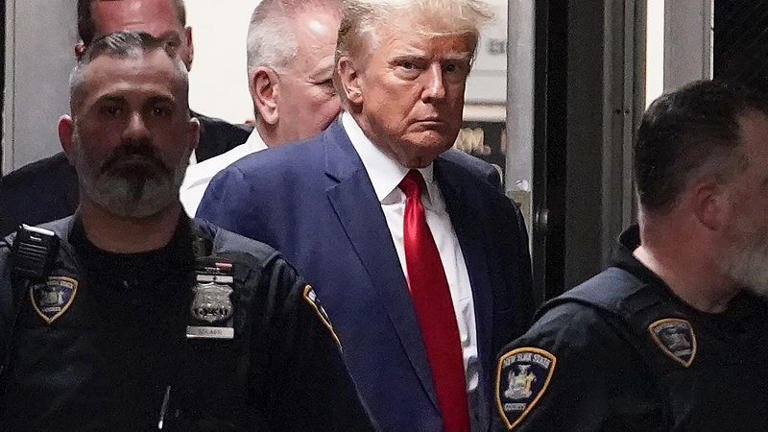On March 4, 2024, Donald Trump will face his first criminal trial.
This was decided by judge Tanya S. Chutkan, in charge of the trial against the former president in Washington, where he is being prosecuted for the assault of his followers on Congress and for attempting to overturn the outcome of the 2020 presidential elections.
The judge rejected the former president’s defense request to postpone the trial until after the next presidential election, which will be held in November 2024, and in which Trump is still the favorite Republican candidate.
Trump’s lawyers had requested that the trial begin in April 2026.
The date chosen, March 4, precedes “Super Tuesday” by one day, the event closest to a national primary in the United States, as more than a dozen states, both Republican and Democrat, will simultaneously hold domestic votes for choose their candidates.
An “unexplored” territory
The former president is charged in Washington with four counts: conspiracy to defraud the United States, conspiracy to obstruct an official proceeding, obstruction and attempted obstruction of an official proceeding, and conspiracy against rights.
The first count carries a maximum sentence of five years in prison, the second and third counts respectively carry a maximum sentence of 20 years in prison and the fourth count carries a maximum sentence of 10 years’ imprisonment. prison.
If the judicial calendar goes smoothly and the jury finds him guilty, Trump’s electoral career would enter uncharted territory, as the US Constitution does not provide a precise timetable for a newly elected president – should he be elected – who must serve a sentence or face prison.
President and convicted: the questions raised by the Trump case
For Greg Swenson, president of “Republicans Abroad” in the United Kingdom, it is “highly unlikely” that the former president will end up behind bars.
“Even if there are convictions, they will be appealed and could probably be overturned on appeal,” Swenson says, adding, “There is a possibility that Trump could be convicted of any of these alleged crimes or any of these charges, but it is unlikely to go to prison.”
However, the analyst also admits that this possibility, if it were to materialize, would drag the United States into an unprecedented episode in their history.
Scott Lucas, professor of American politics at the University of Birmingham in the UK, agrees with Swenson on this point.
“Trump can run for president even if he is a convicted felon. There is nothing in the Constitution that prevents him from doing so. There is a possibility that he will be convicted of one of these alleged crimes. able to stand for election. It is not known how he would exercise his role as president, because this situation is unprecedented”.
The importance of the process in Georgia
The announcement of the Washington trial came minutes after the announcement that the preliminary hearing of Trump and 18 other people accused in Georgia of having attempted to nullify the results of the 2020 election in that state will be held on September 6.
The trial, the date of which has not yet been determined, could be crucial for the fate of the former president. It all boils down to the difference between a federal crime and a state crime.
“Donald Trump couldn’t pardon himself on a state charge. Legal experts don’t even believe he can pardon himself on a federal case, but they’re still debating it. There’s no doubt he has no power over states to do so “explains Lucas.
According to the professor, Trump would not be able to overturn any court decision against him, in Georgia, using executive powers, if he were to be re-elected president in November’s elections.
“Because of this, the fact that he faces hundreds of years in prison for the 13 felony charges in Georgia is, in some ways, more serious than the hundreds of years he faces in the other trials.”
The other processes: where and when
Trump has also pleaded “not guilty” in the other cases in which he is accused: for irregular payments to porn actress Stormy Daniels, for hiding his past “relationship” during the 2016 election campaign and in the case of the Mar- a-Lago, Florida, where he illegally brought confidential documents from the White House, after leaving office and for having “incited” the crowd – this is the accusation – at the Capitol, on January 6, 2021.
The process for irregular payments to Stormy Daniels will begin March 25, 2024 in New York.
The Florida trial over the top-secret documents is scheduled for May 20, 2024, just over six months before the presidential election.
Despite the serious accusations leveled against him, the former president declares his innocence and, according to polls, always growing, remains the absolute favorite among the Republicans.
This article is originally published on .msn.com


